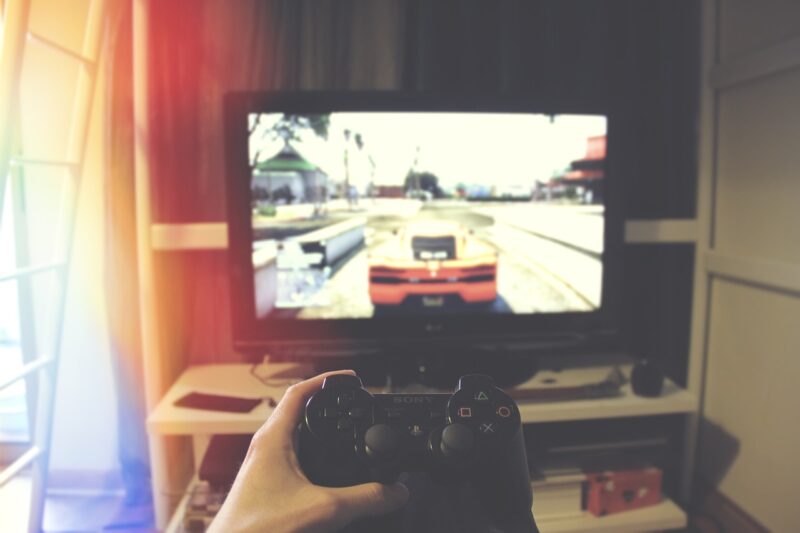Top Tips for Selecting a Gaming Laptop: Graphics, Speed, and Durability Considerations
November 14, 2024

In the world of gaming, having the right hardware can be the difference between a thrilling experience and a frustrating one. Whether you’re a casual gamer or a competitive player, selecting the right gaming laptop involves careful consideration of multiple factors, including graphics capability, processing speed, and overall durability.
To help you make an informed decision, we’ve compiled a comprehensive guide on what to look for when selecting a gaming laptop. Let’s delve into the critical aspects you need to consider.
1. Understanding Graphics Performance
When it comes to gaming laptops, graphics performance is arguably the most critical aspect. The graphics card (GPU) plays a vital role in rendering complex graphics and ensuring a smooth gameplay experience.
Here are some key points to understand about graphics:
- Dedicated vs. Integrated Graphics: Always opt for a laptop with a dedicated graphics card. While integrated graphics can handle everyday tasks, they often fall short in high-performance gaming.
- Popular GPU Brands: NVIDIA and AMD are the two leading brands in the gaming industry. NVIDIA’s RTX series is renowned for its ray-tracing capabilities, while AMD’s Radeon RX series offers excellent performance for the price.
- VRAM Considerations: Video Random Access Memory (VRAM) is essential for texture storage and asset loading. Aim for at least 4GB of VRAM for a decent gaming experience, although 6GB or more is preferable for high settings in modern games.
Investing in a powerful graphics card will ensure that you can enjoy the latest titles at optimal settings.
2. Processor Power: Speed Matters
A laptop’s CPU (Central Processing Unit) significantly affects its overall performance, especially in CPU-intensive games and multitasking scenarios.
- Choose the Right Brand: Intel and AMD dominate the market. Intel’s Core i5 or i7 processors are top choices, while AMD’s Ryzen 5 and 7 series also deliver outstanding performance.
- Clock Speed and Cores: Look for a processor with a high clock speed (measured in GHz) and multiple cores. A quad-core or higher processor will handle modern games more efficiently, particularly those with open-world environments.
- Cooling Solutions: High-performance CPUs generate heat, so consider laptops with effective cooling systems to prevent thermal throttling during intensive gameplay.
Combining a robust GPU with a powerful CPU will provide the versatility required for gaming, streaming, and creative applications.
3. RAM: Memory for Smooth Performance
Random Access Memory (RAM) plays a crucial role in how smoothly games run and how many applications can run simultaneously without lag.
- Minimum Requirement: A gaming laptop should have at least 8GB of RAM. However, for serious gamers, opting for 16GB or more is advisable for enhanced performance and multitasking capabilities.
- Future-Proofing: Consider models that allow for RAM upgrades. As games evolve and system requirements increase, having the ability to expand your memory will extend the life of your laptop.
Having adequate RAM is essential for a seamless gaming experience and efficient program management.
4. Storage Solutions: Speed and Capacity
When it comes to storage, your choices will significantly affect load times and the overall experience.
- HDD vs. SSD: Solid State Drives (SSDs) are much faster than traditional Hard Disk Drives (HDDs). An SSD will reduce loading times significantly and improve system responsiveness. Aim to choose a laptop with an SSD for your operating system and frequently played games.
- Storage Capacity: While SSDs are faster, they are also more expensive per gigabyte. A common solution is to combine both: use a smaller SSD (256GB or 512GB) for the OS and key games, and an HDD (1TB or more) for additional storage.
This combination maximizes speed while providing ample storage capacity for your games and files.
5. Display Quality: Visual Experience Counts
The display is your window into the gaming world. A high-quality display can elevate your gaming experience.
- Resolution: Opt for at least a Full HD (1920×1080) resolution. Higher resolutions like 1440p or 4K provide more detailed visuals but may require more powerful hardware to run at a steady frame rate.
- Refresh Rate: A higher refresh rate (120Hz or 144Hz) provides smoother motion, which is especially beneficial for fast-paced games. This ensures that your gameplay is fluid and responsive.
- Panel Type: IPS panels offer better color reproduction and wider viewing angles than TN panels, making them suitable for immersive gaming.
A high-quality display will not only enhance your gaming visuals but also provide an enjoyable multimedia experience.
6. Battery Life: Gaming on the Go
While gaming laptops are primarily designed for performance, portability also plays a vital role. Look for laptops with longer-lasting batteries, especially if you plan to game on the go.
- Battery Specifications: Gaming laptops traditionally consume more power; hence, those with less than 6 hours of battery life may not be suitable for portable use. Aim for 7 hours or more when not gaming.
- Power Saving Features: Check for laptops with power-saving modes or alternatives to optimize battery life while streaming videos or doing lighter tasks.
Balancing performance with battery life is essential, especially for gamers who travel frequently or attend LAN events.
7. Build Quality and Durability
Durability matters, especially if you plan to transport your gaming laptop regularly. Here are factors to consider:
- Material Quality: Look for aluminum or magnesium alloy chassis that are sturdier compared to plastic. These materials provide enhanced durability without adding unnecessary weight.
- Key Quality: Since gaming involves a lot of clicking and typing, consider keyboards with robust key switches that can withstand prolonged use.
- Thermal Management: Effective heat dissipation is crucial for maintaining performance during intense gaming sessions. Examine user reviews to assess build quality and potential overheating issues.
Selecting a durable laptop ensures that it can withstand the rigors of gaming, whether at home or on the move.
8. Additional Features and Connectivity
Apart from the core specifications, consider additional features and connectivity options:
- Ports Availability: Ensure you have ample USB-C and USB 3.0 ports, HDMI, and Ethernet connections. An SD card reader can also be useful for transferring files.
- Audio Quality: High-quality speakers and headphone jack are essential for an immersive gaming experience. Look for gaming laptops that offer good sound quality.
- RGB Lighting and Aesthetics: Many gamers appreciate customizable RGB lighting. While it’s not essential, it can add a bit of flair to your gaming setup.
These additional features help enhance the overall user experience and cater to personal preferences.
Conclusion
Selecting the right gaming laptop involves balancing multiple factors, from graphics performance to battery life and build quality. By considering the points outlined in this guide, you’ll be well-equipped to find a laptop that meets your gaming needs and preferences. Whether you’re aiming for high-end gaming or a budget-friendly option, keeping these essential aspects in mind will ensure an optimal gaming experience for years to come.








